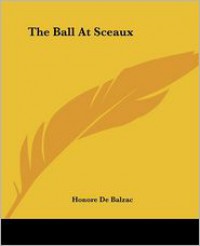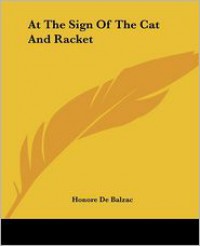Lost in the Stacks
I read widely and compulsively and my fancies are ever changing. My love of reading, however, is no mere fancy.
BEWARE OF GOODREADS BOOK GIVEAWAYS! YOUR personal information is being shared!
There's no indication of what they plan to do with this informations, but the fact that none of these authors are respecting the privacy of potential readers is worrisome enough.
Whether you believe you're one of the "trolls" being targeted is beside the point, everyone should be concerned, if not outright pissed. The personal information of ALL the participants in these giveaways is being shared without their permission.
Not surprising, GoodReads has absolutely nothing safeguarding privacy of the participants' personal information in the Terms & Conditions of their giveaways.

I already posted this today, but worth another look.
 2
2
[Reblogged from Amandawelling] Tracking readers through Goodreads giveaways.
[Reblogged by The Stacks]:This is my comment on the issue. AmandaWelling's rebog starts from *** This is very worrying. Someone 'anonymous' is collecting real life names and addresses through GoodReads, but they don't want anyone to know who they are. Another author wants to have this information - for what if it isn't for stalking?
I'm not really involved in the reviews/comments/spa authors thing as I don't read in any of their genres, but all this tracking of people is worrying. It's worrying because if 'anonymous' (what a coward eh? At least the other author has the courage of his convictions and uses his name) can track people and their friends, what about all sorts of other crazies, maybe targetting the kids with the private profiles sending away for stuff?
This is seriously Not Good.
***

...I'm not surprised by this anymore.
 1
1
 Just a delicious collection of essays on 'Siren Land': Naples and its environs.
Just a delicious collection of essays on 'Siren Land': Naples and its environs. Inevitably, I've found recently, should you mention your plans to travel to Italy to anyone, that book comes up. The one with the movie, the book that launched a thousand journeys of self-discovery to Italy and India and Malaysia, I think. [A favorite story: Somewhere, in Malaysia (or Indonesia?) there is a cafe with a sign behind the counter that reads: Eat. Pay. Leave.] I've scoffed. I'll admit. I never read the book, only watched part of the movie with Handsome Husband one Saturday afternoon in the middle of a torrential downpour. I will save you from my critique. No - I won't. 1) Rome has NEVER been that empty. Ever. Romulus and Remus brushed their way through crowds. 2) The Italian people are not Sesame Street characters. 3) The pasta was your only take home? In a 2500 year old city, seat of one of the greatest empires the world has ever known, home to Michaelangelo and Bernini and Cicero and St. Peter's and the Colosseum- the pasta was the centerpiece?
But, I've calmed, since reading The Ancient Shore. Here, Hazzard writes:
I was warned - as are all who pursue their dreams - by those who define reality as a sequence of salutary disappointments that 'reality' would soot set in. I was reminded that immemorial outsiders had followed that same cisalpine path. Yet we trusted to the private revelation. Of her time in Rome, Elizabeth Bowen wrote: 'If my discoveries are other people's commonplaces I cannot help it - for me they retain a momentous freshness.' And so, for most of us, it was and is.
So I can't really get that mad with the fetishization of pasta, nor the deceptively empty streets. It's a masked jealousy of a place that I feel, falsely, is more MINE by right than theirs that drives that knee-jerk scoff. I know of no better explanation for my (and Elizabeth Gilbert's, and Elizabeth Bowen's and Shirley Hazzard's and the clerk at the bookstore where I bought this book and the stylist at Banana Republic who sold me a beautiful orange red and black scarf for my last trip to Italy and who eloped with her husband on a whim in a tiny chapel in Florence) infatuation with The Peninsula than the explanation that Hazzard provides:
[We were] living more completely among the scenes and sentiments of a humanism the New World could not provide. The Italian admixture of immediacy and continuity, of the long perspective and the intensely personal . . . Italy again offered to travelers her antique genius for human relations - a tact, an expansiveness never quite with out form. One was drawn, too, but beauty that owed as much to centuried endurance as to the luminosity of art and that seemed, then , to create an equilibrium as lasting as nature's. Like the historian Jakob Burckhardt, we felt all this was ours 'by right of admiration.'
So, I'm head over heels - or boot, as it were. I can't get enough of Italy, nor of Hazzard's prose. This book is so full of such rich and succulent description, I'd eat it like a bowl of over-hyped pasta at a tourist joint near the train station if I didn't want so badly to read it again. Four stars, because I needed more than 140 pages.
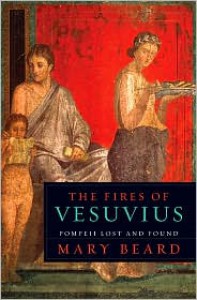 What a perfect introduction to the archaeology of Pompeii! An engaging and honest look at the town and its history. I have wanted to see Pompeii since I was a little girl and am finally going to have the chance in four weeks. I will know better how well this prepared me then. Review to follow . . .
What a perfect introduction to the archaeology of Pompeii! An engaging and honest look at the town and its history. I have wanted to see Pompeii since I was a little girl and am finally going to have the chance in four weeks. I will know better how well this prepared me then. Review to follow . . .
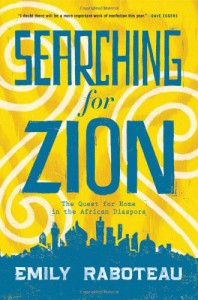 Full Disclosure: I received this book as an ARC from the Amazon Vine program in exchange for a review, and this review also can be found on Amazon.
Full Disclosure: I received this book as an ARC from the Amazon Vine program in exchange for a review, and this review also can be found on Amazon. Searching for Zion was first excerpted in The Believer, which published the chapter titled: "Points to Ponder when Considering Repatriating Home", which stirred my interest in Raboteau's larger work.
Ten-years in the making, Searching for Zion could be catagorized as a personal memoir, a family memoir, a travel memoir, a work of history and a study in comparative religions. It transcends all, though, as a narrative of a young 'witness', as the author finally styles herself at the end, searching for a definition of home.
"Points to Ponder" is perhaps the most riveting chapter in the entire book: Raboteau skillfully disects the legacy of slavery in Ghana while describing her visit to the slave castle of Elmina and discussing the relationships between African Americans who 'Repatriate home' to Ghana and the Ghanians who never left.
The fates of diasporas are an educational interest of mine and I was rapt with Ms. Raboteau's history of Black Zionism. She travels from Harlem to Israel to Jamaica, to Ethiopia and Ghana, and finally to the Black belt of the American south, seeking answers from the communities of the Black diaspora to the question: What is Zion? And where? All the while she investigates her own feelings of displacement, or misplacement, and how they relate to her African-American heritage and her relationship to her father.
I am not a fan of the new creative-non-fiction that has become so popular recently. There are few things that I dislike more than reading a blurb of a book, describing some strange or forgotten history, only to pick the book up and in chapter three have to read about the author's fraught relationship with their mother or the backpacking trip they took through Moravia when they were 19. It is a rare author who can pull off inserting history into personal memoir or personal memoir into history, but Raboteau succeeds by writing a book that, by making its focus neither personal history nor greater history, but a search for a definition, seamlessly incorporates both personal memoir and narrative history together into a coherent, organic whole.
The only thing that this book was missing, for me, was Harlem. After starting off in the first chapters describing her neighborhood, Raboteau stops. She seems to insinuate that Harlem was Zion, too, for blacks fleeing the South, and that Harlem was a departure point for many seeking Zion elsewhere, but it is always in the perifery, never at the forefront. Many of Ms.Raboteau's interviews are incredibly probing, and she doesn't seem to let people off easily. I wonder if she chose not to cover her neighborhood because she didn't want to put her neighbors on the spot; or maybe I am wrong and she wasn't really hinting at a place for Harlem in her quest for Zion.
Highly recommended.
 1
1
Catherine; A Villagee Tale (Large Print Edition)
 The village of Saint Sylvain hasn't two sous to rub together, in spite of all of the hard working and good people who live there. Francois Paty, the cure, gives everything he has to keep his flock in clothes and food. Catherine, his orphaned niece, called 'the little fairy' gives all she has, too. Claude, who sings in Church, loves Catherine. Catherine loves Claude - but not like that. The village and Francois Paty assume they'll be married someday. Then along comes Roger. Roger is the son of a Count, and has all of the money to make the problems of Saint Sylvain go away forever. Roger falls in love with Catherine, and Catherine with Roger, Claude is heart broken. Roger's father, the count, hates priests, and especially Francois Paty. The count wants Roger to marry his rich, snotty cousin. Whatever else happens, someone at the end of this book is getting hitched. Care to find out who?
The village of Saint Sylvain hasn't two sous to rub together, in spite of all of the hard working and good people who live there. Francois Paty, the cure, gives everything he has to keep his flock in clothes and food. Catherine, his orphaned niece, called 'the little fairy' gives all she has, too. Claude, who sings in Church, loves Catherine. Catherine loves Claude - but not like that. The village and Francois Paty assume they'll be married someday. Then along comes Roger. Roger is the son of a Count, and has all of the money to make the problems of Saint Sylvain go away forever. Roger falls in love with Catherine, and Catherine with Roger, Claude is heart broken. Roger's father, the count, hates priests, and especially Francois Paty. The count wants Roger to marry his rich, snotty cousin. Whatever else happens, someone at the end of this book is getting hitched. Care to find out who?
 If Guy Ritchie has one excuse to make another Sherlock Holmes movie, it is to be the filmmaker who built a scale model of the Crystal Palace at Sydenham and then blew it up. Or blew part of it up. I'd settle for a wing, and pay the twenty bucks to see it done in IMAX.
If Guy Ritchie has one excuse to make another Sherlock Holmes movie, it is to be the filmmaker who built a scale model of the Crystal Palace at Sydenham and then blew it up. Or blew part of it up. I'd settle for a wing, and pay the twenty bucks to see it done in IMAX. 'Reclaimed', in the modern parlance, from the glass hall built for the Great Exhbition in 1851, the Crystal Palace was a Victorian Epcot Center of the ancient and prehistoric , built in the center of a three story hothouse, overdone and cluttered as only the Victorians could clutter and overdo:
The ethos of the new Cystal Palace was to be the education of the masses, by giving them an 'Illustrated Encyclopedia'. To that end, a historical theme park awaited them, with prehistory in the grounds, and the march of time in ten 'Architectural Courts' . . .
There was an eact replica of the Court of Lions in the Alhambra Court, and an authentic copy of an elaborate Moorish stalactite-honeycomb roof, in 5000 separate pieces of gelatine. this just wasn't enough.. . .this grand design got tangled up with . . . Zoological collections, and freak shows and the Directors concern to make money. The many beautiful illustrations show greenery dripping from every projection and palm trees everywhere. There were bazaars selling everything from shawls to pianos, toys to furniture. . .Attentive visitors in search of enlightenment found themselves confronted by models of grotesque people and collections of stuffed animals, including a hippopotamus. . . One of the iguanadons was 34 feet long, big enough for twenty gentlemen to sit under the mould prepared for it and enjoy a splendid dinner, in 1853.
The palace itself contained 400 tons of glass and 4000 tons of iron. It was twice the size of the Great Exhbition hall with three stories and three vaulted transepts and could bee seen on its perch on sydenham hill from Hammersmith, some 12 miles away, if the night was clear. it sounds amazing, and somehow this is the first I've heard mention of it. It burned to the ground in1936 (there are spectacular photographs of the fire available on line), too late for Mr. Holmes, and has largely been forgotten by history. Let's hope historical fiction and period films can one day bring it back.
* * *
I could never get into [b:Our Mutual Friend, though I wanted to so badly. Bleak House struck my fancy immediately, and remains one of my all time favorites, but OMF, though the book blurb sounded right up my alley, was a slog. I out in down, hoping to pick it up again before I reached my deathbed, but this was more from sheer obstinacy than a true desire to read OMF from cover to cover. Reading Victorian London, however, I kept thinking back to it. More than BH, which takes as its target the whole of Victorian society, OMF, from it's Thames watermen to the wealthy 'dust pile' owner, all described in vivid detail by this fine history, is a novel of London itself. I think Victorian London may have filled in the pieces I need to finish OMF and enjoy it.
 1
1

Suite Française debuted in English in 2006,and i was immediately drawn to the tragedy of the author's story: Irene Nemirovsky, a talented and prolific author, editor and mover/shaker of the Parisian literary world, was murdered at Auschwitz before finishing her magnum opus. I was so drawn by this tragedy, by the historical import, by the romance of the manuscript discovered in a trunk sixty years after the authors death that bears witness to her remarkable life, that I was sure that it couldn't actually be a good book.
I was wrong. Suite Française is not only a good book it is amazing, all the more so for being a first and incomplete draft.
The first quality of the novel apparent was Nemirovsky's ability to convey the environment. The first movement of the novel, "A Storm in June", details the exodus from Paris that occured immediately prior to the arrival of the German army. Many different families are portrayed so as to give a cross section of the Parisian society fleeing the bombings. This act of the novel is not driven by characters or their development, but their movement and their stasis during the evacuation: to a village, where there are no rooms to stay, to the train station, which is locked, walking down dusty roads, driving until their cars break down, and the reader is there with them. Nemirovsky was able to sustain this illusion by offering contrasting details: "you sometimes hear the whole orchestra, sometimes the violin."
Much of the writing here reminds me of the opening of George Eliot's The Mill on the Floss in that I could not only 'see' the surroundings but feel them. Many authors write moving depictions of color and light and scent, many can lay out a landscape, but few can make you feel the air on your skin the way Eliot does in this passage:
The stream is brim full now, and lies high in this little withy plantation, and half drowns the grassy fringe of the croft in front of the house. As I look at the full stream, the vivid grass, the delicate bright-green powder softening the outline of the great trunks and branches that gleam from under the bare purple boughs, I am in love with moistness, and envy the white ducks that are dipping their heads far into the water here among the withes - unmindful of the awkward appearance they make in the drier world above.(The Mill on the Floss, "Outside Dorlcote Mill", pg. 54.
And here is Nemirovsky, in the bit that brought Eliot to mind:
The windows and shutters were both open. The moon lit up the rooftops in the village; the tiles glistened like the scales on a fish. The garden was fragrant, peaceful, and the silvery light seemed to shimmer like clear water, gently rising and falling over the fruit trees. . . The short June night was fading. The stars grew paler, he air smelled of milk and moist grass; now, half-hidden behind the forest, only the pink tip of the moon could be seen, growing dimmer and dimmer in the mist. Suite Francaise, pg.98
"What interests me here is the history of the world," Nemirovsky wrote in her journal while composing Suite Française, and most of "Storm in June" is not typical of the opening act of a novel: this is fiction for the sake of posterity. Nemirovsky captures the moods of the evacuees: fear, certainly, but also vicious self-preservation, indifference, greed, and exhaustion. These 'moods' are developed further in the characters of the Angelliers and Sabaries and the German officers who billet with them in 'Dolce', the second and last completed movement. One mood that stood out to me, possibly because of my interest in the Great War (more so than the Second World War), and possibly because of the recent death of Florence Green, the last surviving veteran of the Great War (and also possibly because of the influence of Downton Abbey), is the sense of betrayal by fate so many of them feel and express. There is a sense of determinism in their response: as though this war could not have been prevented by men, that somehow their plight was a overdose of bad luck. Here is Lucille Angellier:
The individual or society? she thought. Well, Good Lord! Nothing new there, they hardly invented that idea. Our two million dead in the last war were also sacrificed to the "spirit of the hive." They died . . .and twenty-five years later . . What trickery! What vanity! There are laws that regulate the fate of beehives and of people that's all there is to it. (pg. 263)
This two-fifths of a novel was not only beautifully written but provides essential insight and first-hand observation of the German invasion of France and the occupation, as well as bearing witness to the struggles of an occupied people.
This is the second third [b:Every Man Dies Alone by Hans Fallada, a fictionalized account of the true story of a German couple who made protest against the war; All Our Yesterdays by Natalia Ginzburg, which told the story of an Italian family who loses their paterfamilias just as Italy allies itself with Hitler, and The Path to the Spiders' Nests by Italo Calvino, about a young boy who joins the partisans in their war against the Nazis set in the mountains of Northern Italy were the others. I'm looking for more novels written from first-hand perspectives of this war (or other wars, for that matter. ) Suite Française is highly recommended. If you have any other recommendations in this arena, please let me know!
 1
1
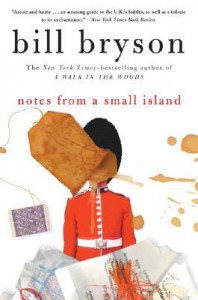 Another good travel memoir from Bryson. I wish, just a tiny bit though, that he'd learn how to pick a decent hotel.
Another good travel memoir from Bryson. I wish, just a tiny bit though, that he'd learn how to pick a decent hotel.
 There isn't much here that you wouldn't find in a wikipedia article, and this kindle single isn't much longer than that. I still had seven minutes left on the elliptical in the gym when I finished this. Jarvis tries to paint Gutenberg as the 15th century Steve Jobs, which is an interesting theory, but he doesn't back it up with much evidence - just a lot of 'Gutenberg did 'x'. JUST LIKE STEVE JOBS!'. The writing-style is reminiscent of a motivational speaker, which I also found a little annoying.
There isn't much here that you wouldn't find in a wikipedia article, and this kindle single isn't much longer than that. I still had seven minutes left on the elliptical in the gym when I finished this. Jarvis tries to paint Gutenberg as the 15th century Steve Jobs, which is an interesting theory, but he doesn't back it up with much evidence - just a lot of 'Gutenberg did 'x'. JUST LIKE STEVE JOBS!'. The writing-style is reminiscent of a motivational speaker, which I also found a little annoying. An interesting hypothesis, and one that I wouldn't mind reading about in book-length form, by a person with better writing skills.
 1
1
 Varian Fry was a young Harvard graduate in 1935 when he realized the horror that was facing the Jewish populations of Europe with the rise of hitler. A lover of European culture and western civilization, he set out to save europes artists and intellectuals from murder at the hands of the nazis and in 13 months, before e was escorted out of Vichy France by the pro nazi government with the collusion of the US state department, he succeeded in saving over fifteen hundred people who were listed for arrest by the Gestapo. Why then, Dara Horn asks, have we never heard of him?
Varian Fry was a young Harvard graduate in 1935 when he realized the horror that was facing the Jewish populations of Europe with the rise of hitler. A lover of European culture and western civilization, he set out to save europes artists and intellectuals from murder at the hands of the nazis and in 13 months, before e was escorted out of Vichy France by the pro nazi government with the collusion of the US state department, he succeeded in saving over fifteen hundred people who were listed for arrest by the Gestapo. Why then, Dara Horn asks, have we never heard of him?
Our French Connection
 A cute short piece by an author, with some experience living in France, who is curious about how other Americans feel about France and the French. To this end, he visits a couple of American towns named Paris and interviews the residents. This was laugh out loud funny- a great quick read.
A cute short piece by an author, with some experience living in France, who is curious about how other Americans feel about France and the French. To this end, he visits a couple of American towns named Paris and interviews the residents. This was laugh out loud funny- a great quick read.




 4
4
